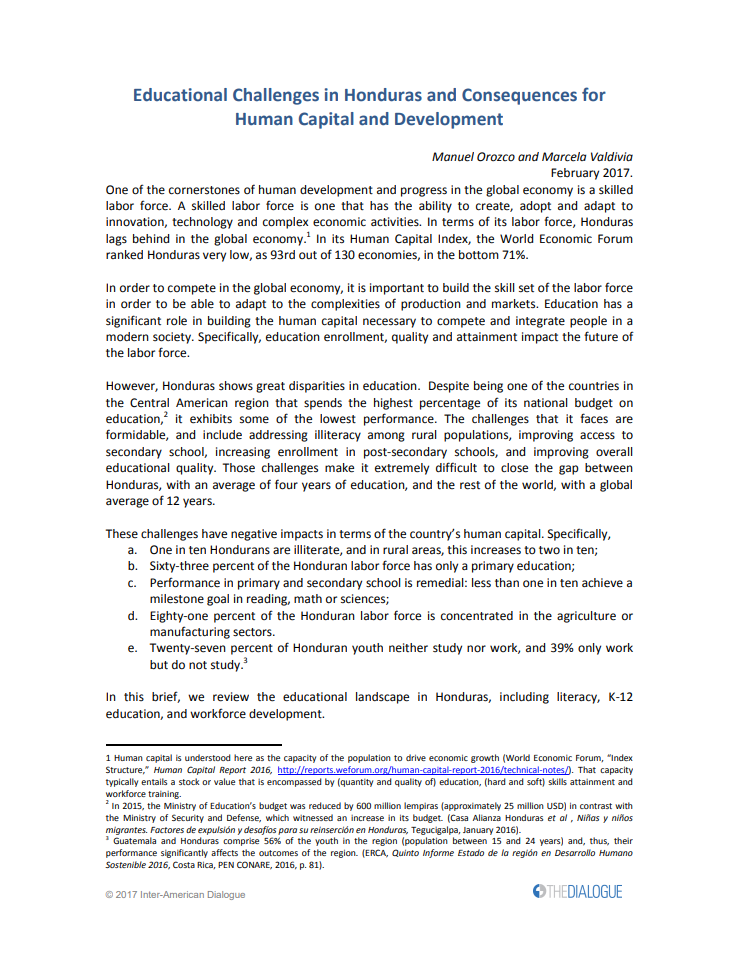Protecting Latin America’s Poor During Economic Crises
History tells us that economic crises cause large increases in poverty. The most recent economic crisis will cause Latin America’s GDP to contract around 2 percent in 2009.
One of the cornerstones of human development and progress in the global economy is a skilled labor force. A skilled labor force is one that has the ability to create, adopt and adapt to innovation, technology and complex economic activities. In terms of its labor force, Honduras lags behind in the global economy.[1] In its Human Capital Index, the World Economic Forum ranked Honduras very low, as 93rd out of 130 economies, in the bottom 71%.
In order to compete in the global economy, it is important to build the skill set of the labor force in order to be able to adapt to the complexities of production and markets. Education has a significant role in building the human capital necessary to compete and integrate people in a modern society. Specifically, education enrollment, quality and attainment impact the future of the labor force.
However, Honduras shows great disparities in education. Despite being one of the countries in the Central American region that spends the highest percentage of its national budget on education, it exhibits some of the lowest performance. The challenges that it faces are formidable, and include addressing illiteracy among rural populations, improving access to secondary school, increasing enrollment in post-secondary schools, and improving overall educational quality. Those challenges make it extremely difficult to close the gap between Honduras, with an average of four years of education, and the rest of the world, with a global average of 12 years.
In this brief, we review the educational landscape in Honduras, including literacy, K-12 education, and workforce development.
[1] Human capital is understood here as the capacity of the population to drive economic growth (World Economic Forum, “Index Structure,” Human Capital Report 2016, https://reports.weforum.org/human-capital-report-2016/technical-notes/). That capacity typically entails a stock or value that is encompassed by (quantity and quality of) education, (hard and soft) skills attainment and workforce training.
History tells us that economic crises cause large increases in poverty. The most recent economic crisis will cause Latin America’s GDP to contract around 2 percent in 2009.
Since achieving independence in 1804 to become the world’s first free black state, Haiti has been beset by turbulent, often violent, politics and a gradual but seemingly unstoppable slide from austerity to poverty to misery.
The goal of education is to promote learning. Sitting in classrooms is a weak proxy for knowing how to read, do math, and apply science. Latin America needs to worry less about schooling and more about learning.
